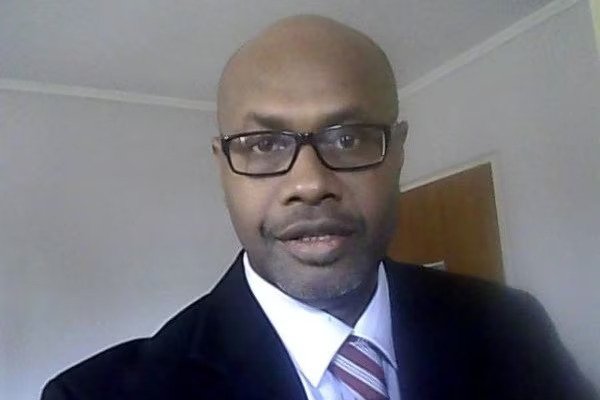Neville Devete
2023 BLUEPRINT ASIA-PACIFIC
WHISTLEBLOWING PRIZE
Photo: Neville Devete
The whistleblower who sparked one of the biggest corruption cases in Papua New Guinea’s history, dubbed “Parakagate”, has finally been vindicated more than a decade after his initial disclosure.
Neville Devete was the solicitor general in Papua New Guinea (PNG) when he opened a complaint in 2012 with the anti-fraud and corruption squad about large suspicious payments made to various law firms by the Department of Finance. He requested an independent investigation.
According to a court judgement delivered earlier this year, Devete did not refer to any specific law firms in his complaint, which only covered payments made in 2012. Detectives later discovered similar payments had been made dating back to 2007, and that the ultimate beneficiary was prominent PNG lawyer and businessman, Paul Paraka.
In May this year, after an investigation lasting more than ten years, Paraka was found guilty of misappropriating 162 million PNG Kina (equivalent of US$45 million) in public funds. He was subsequently sentenced to 20 years in prison.
In her ruling, National Court Judge Teresa Berrigan concluded that “extremely large amounts of monies belonging to the State” were paid to Paraka, even though he was not entitled to them. Funds were transferred either “to a company solely owned and operated by the accused but not bearing his name, or siphoned through the accounts of seven other law firms, none of which had any entitlement to the monies, in an elaborate scheme designed to distance the monies from the accused and avoid detection”. Bank records showed the money was spent soon after being deposited in accounts Paraka controlled, “and that the funds were dissipated”.
In her judgement, Judge Berrigan described Devete as “a careful and honest witness”.
The case has had many twists and turns over the years and illustrates the challenges and risks faced by investigators and honest civil servants intent on cleaning up corruption in PNG.
Shortly after laying the complaint, Devete had to give up practicing law in PNG and moved to Australia with his wife and youngest children. Some of his older sons, who remained in PNG with relatives finishing high school, faced threats and intimidation.
The investigation into Paul Paraka was initially undertaken by Task Force Sweep, a multi-agency body achieving some notable successes in cracking down on high-level corruption. The investigation implicated several senior government members, including then prime minister Peter O’Neill, in corruption.
In 2016, when a warrant of arrest was issued for O’Neill, he disbanded the task force, saying the prosecution was politically motivated. The move sparked student protests calling for O’Neill’s resignation that were met with heavy-handed police crackdowns. O’Neil’s arrest warrant was later thrown out in court and the charges against him eventually dropped.
In 2018, a district court dropped the charges against Paraka too, prompting him to threaten legal action against investigators and officials, including Devete. Subsequently Paraka was re-indicted. In 2020 he succeeded in getting the charges against him dismissed, only to be charged again. Throughout he maintained he was the victim of an abuse of power.
In this politically charged atmosphere, Devete’s life was at risk if he returned to Papua New Guinea, a country where witnesses and their families have routinely been subjected to intimidation and retaliation, including, in extreme cases, physical harm.
The Federal Circuit Court of Australia ruled that Devete and his family were eligible to apply for asylum due to the threats they face back home. A senior police investigator from PNG told the Australian court that Devete had been scheduled to provide evidence against government officials, and that his safety was at risk if he returned.
His case highlights the need for greater international recognition of whistleblower protections, particularly those fleeing from countries where the risk of retaliation is high.
Devete told ABC News in June 2023 “a big burden” was lifted from his shoulders when Paraka’s conviction was announced.
“I was relieved that justice has been done, in accordance with the law. I laid the complaint because of my belief that … this money belongs to the people of Papua New Guinea,” he said. “The way this money has been siphoned out of Papua New Guinea, the way the people have been denied 162 million Kina is staggering. It’s an unprecedented amount that’s been stolen.”
He told ABC News that the case had “far reaching consequences. The implications run deep. This court decision is very important for the government. People are suffering in Papua New Guinea. People are crying out for accountability … because there is no deterrence to corruption. Corruption happens on a daily basis.”
Meanwhile the Supreme Court in Papua New Guinea has refused to entertain an application brought by Paraka to be allowed to use his private vehicle to travel to court. Paraka petitioned the court for a stay of conviction, but this was rejected on the grounds that no errors were made in his conviction. He is currently appealing that judgement.
Police investigations are continuing, and prosecutions of those accused of collaborating with Paraka appear likely.
Photo credit: Supplied by Neville Devete

